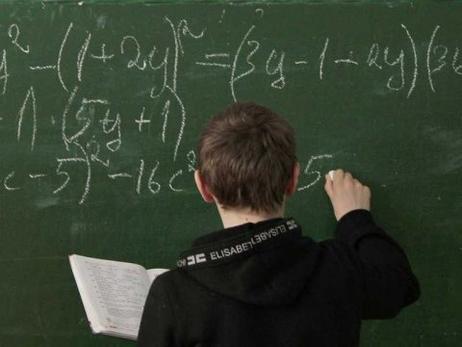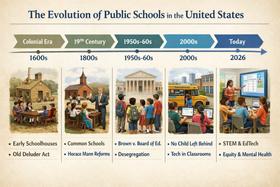As advanced math programs and higher elective courses are being slashed with public school budget cuts, many parents are concerned that the reduced programs will not provide enough support for their math-minded kids.
Most public schools, especially middle and high schools, allow younger students to move beyond their grade level if their math skills are advanced. Subsequently, in light of funding cuts, some students are realizing that they have exceeded all of the higher level program requirements provided by their school. Ultimately, parents are seeking to find answers and new opportunities for their advanced students who can benefit from more challenging math courses.
Public Schools and Math Performance
While there are many math-minded students who desire more demanding and complex courses, studies show that most average-level students are continuing to struggle in the standard public school math programs. As the American Education Finance Association explores, nearly one-third of the country’s college freshman are reportedly unprepared for their college level math requirements. Expanding on this, some local community colleges and universities have even demanded more successful math preparation classes from their public schools.
For example, as the Maryland Gazette states, their local Frederick Community College has requested that nearby high schools focus on more college-prep math. As the Gazette reveals, the number of freshmen who have been required to take remedial math courses upon entering FCC has continued to rise for the past five years. With this data, educators at both the high school and college level are concerned about how to effectively challenge and instruct their struggling students.
Perhaps even more alarmingly, a 2008 study of FCC highlighted the fact that 65 percent of college freshman who were enrolled in remedial math had already taken remedial math and/or college level prep math classes at their high school (just 3 months prior to enrolling in college classes)!
With these breaking news events, as evidenced in cities and states beyond Maryland’s borders, parents whose children have demonstrated higher than average math abilities are expressing alarming concerns. If children in average paced courses are feeling unprepared, what are schools doing to cater to the needs of advanced students?
Advanced Math Opportunities for Public School Students
As Wired Magazine reports, “Regular public schools do the best with what they have, but with state and local education budgets being slashed across the country, most schools don’t have the money or manpower to teach classes that go very far beyond the basics.”
Although the recent data regarding public school programs are far from optimistic, school leaders assert that public schools are still beneficial institutions for advanced students. In fact, to rise above recent budgetary and scheduling complications, many states have implemented specific programs that expressly target math and scientific advancements. As the National Consortium for Specialized Secondary Schools of Mathematics, Science and Technology reveal, there are currently 32 states with public schools that focus on attracting advanced math and science students.
Many of the publically funded advanced math/science schools are commonly known as “charter” or “magnet” schools. With these institutions, students who are accepted into the school’s program are permitted to transfer their designated public school tax dollars towards their magnet or charter school of choice; as a result, the advanced students are provided with a more intense and rigorous curriculum, and they also interact with peers who perform at similar cognitive levels.
Adding to these popular school programs, many public schools also offer math courses at nearby cooperating community colleges. Oftentimes, the public schools will even pay for the student’s community college class. As a result, students are able to take more challenging classes, while parents can benefit from free college credits for their son or daughter!
For math-savvy students and parents, consider researching nearby charter or magnet schools that focus on math and science. Additionally, students in most public schools can also meet with an academic advisor to look into potential community college math class options.
Questions? Contact us on Facebook @publicschoolreview.












